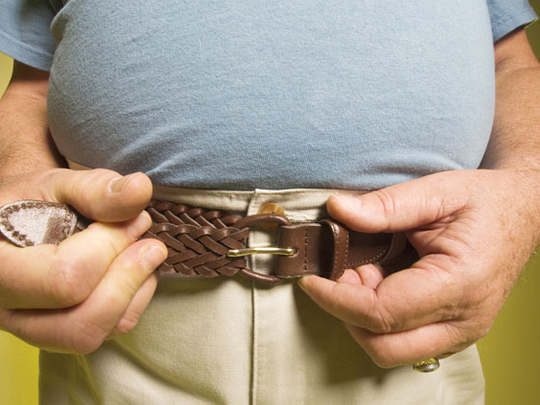
London People are not only tightening their belts financially — obesity figures have fallen since the start of the recession.
A study has found that the number of people who have become dangerously overweight halved in the three years after the financial crisis of 2007.
The results have baffled researchers because they had expected waistlines to expand as the economic downturn affected family incomes. Previous studies have found that people with less money tend to buy foods which are cheaper but higher in calories — such as takeaways and pre-packaged meals — which is why poorer families are more likely to gain weight.
Academics do not yet know why the most recent research appears to suggest that having less money reduces the number of people becoming fat.
But the effect was seen regardless of family income, which suggests a general trend across the population and could be a sign that the healthy-eating message is having an impact at a time when people are being more careful about how they shop.
Researchers used information collected from a study of 350,000 adults across the United States. People were asked for their height and weight, which allows researchers to calculate their Body Mass Index (BMI).
The World Health Organisation considers a person obese if they have a BMI score of 30 or over, and overweight if they have a score of between 25 and 30.
The Arizona State University researchers said: “In all but the poorest income group, the annual increase in BMI decelerated substantially during the recession. There is little evidence that the economic downturn has exacerbated obesity by causing people to consume cheaper foods.”
Obesity rates in the UK — as in the US — have been rising for 20 years. As many as a quarter of all Britons are officially classed as so overweight it threatens their health, and UK women are the fattest in Europe.












